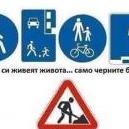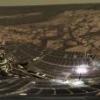Next generation of scientists meets with peers in Vienna
-
Последна активност
-
- 23 мнения
- 992 прегледa
-
Руско-украинската война 2022-2024 година. 1 2 3 4 190
От Р. Теодосиев, in Руско-украинската война 2022 година.
- 4733 мнения
- 363162 прегледa
-
- 17 мнения
- 1836 прегледa
-
- 0 мнения
- 32 прегледa
-
- 0 мнения
- 39 прегледa
-
-
Последно разглеждащи 0 Потребители
- No registered users viewing this page.




Препръчано мнение
Напиши мнение
Може да публикувате сега и да се регистрирате по-късно. Ако вече имате акаунт, влезте от ТУК , за да публикувате.